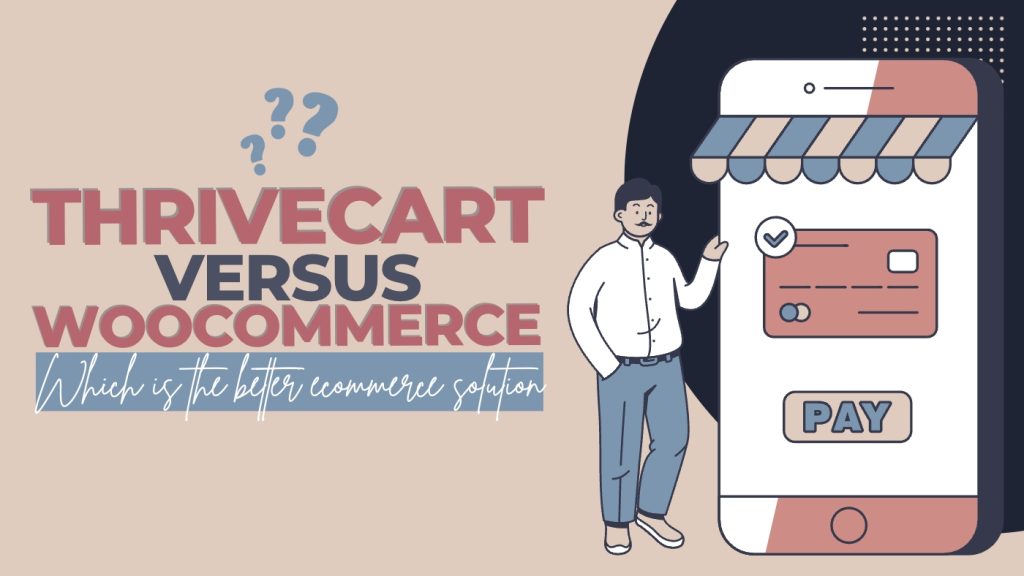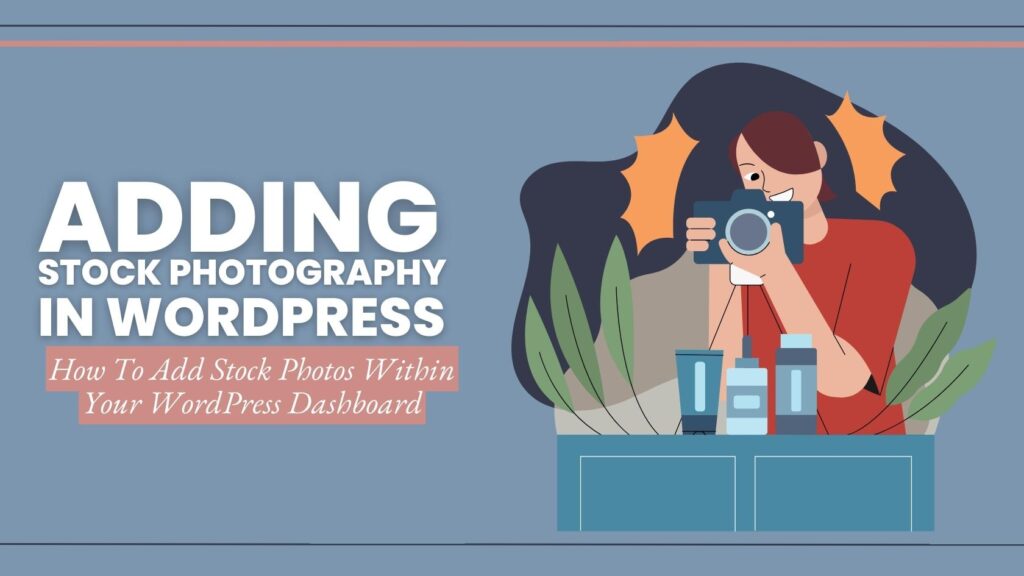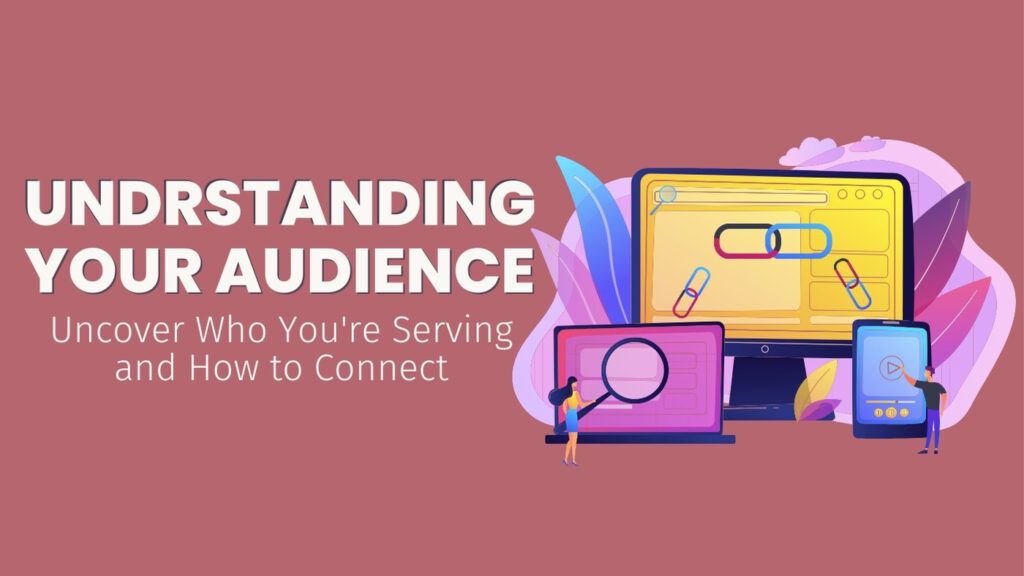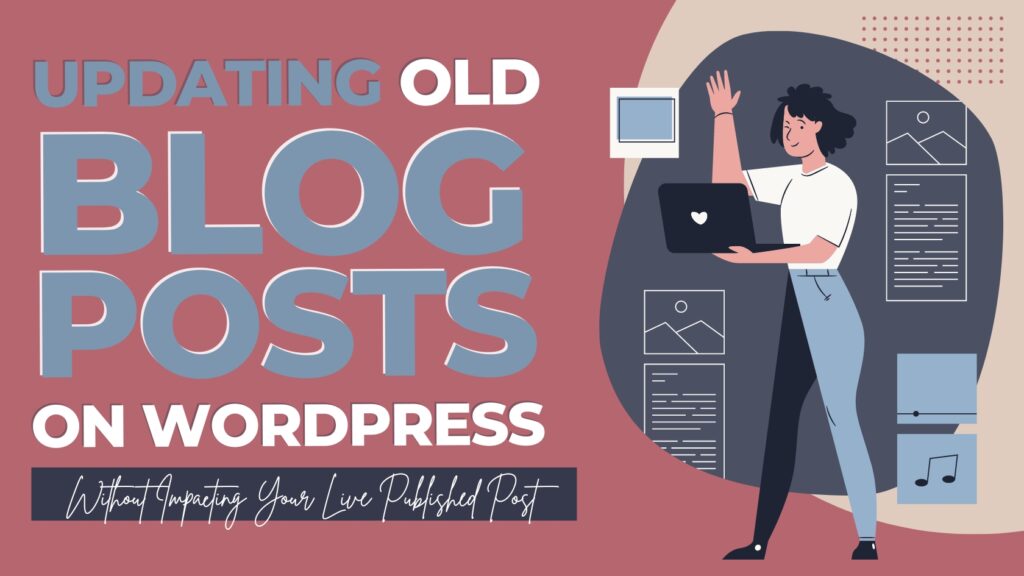Best Practices for Using Plugins & Maximizing Your WordPress Potential

Written By: TaKenya
Published: December 13, 2023
Modified: April 10, 2024

The links in this post may be affiliate links. That means that if you click them and make a purchase, this site makes a commission. It will have no impact on the price you pay or the experience of your purchase.
WordPress plugins are an essential aspect of building and maintaining a successful website. With over 50,000 plugins available, navigating through all the options can be overwhelming for beginners and advanced users alike.
However, using plugins strategically can significantly enhance the functionality and design of your site.
Whether you’re a novice or an experienced user, these tips will help you make the most of your WordPress plugins.

What are plugins on WordPress?
WordPress plugins are like superpowers for your website. They are small pieces of software that you can add to your WordPress site to add new features or enhance existing ones.
Think of them as little helpers that can do almost anything you want your website to do.
Want to add a contact form? There’s a plugin for that.
Need to optimize your site for search engines? There’s a plugin for that too.
With over 50,000 WordPress plugins available, the possibilities are endless.
Plugins are designed to be user-friendly, so you don’t need to be a coding expert to use them.
With just a few clicks, you can install and activate a plugin, and it will start working its magic on your website.
They can help you customize your site, improve its performance, increase security, and make it {more} visually appealing.
Whether you’re a blogger, an online store owner, or a business owner, there’s a plugin out there that can help you achieve your website goals.
Basically, plugins are the secret sauce that can take your website from good to great. They give you the power to create a website that looks amazing and functions flawlessly.

Understanding the Role of WordPress Plugins
WordPress plugins allow you to customize your site, making it more user-friendly, efficient, and visually appealing.
One of the key advantages of WordPress plugins is that they offer a wide range of functionalities.
Whether you want to optimize your website for search engines, improve its security, add social media sharing buttons, or create beautiful galleries, there is likely a plugin available that can meet your needs.
Plugins are designed to simplify the process of adding complex features to your site without requiring any coding knowledge.
This means that even beginners can take advantage of the countless possibilities that plugins offer.
However, it is important to note that while plugins can significantly enhance your website, they can also have drawbacks.
What are the cons of using WordPress plugins?
While WordPress plugins can greatly enhance your website’s functionality and design, it’s important to be aware of their potential drawbacks.
I will list some of the drawbacks of WordPress plugins here.

Plugins can slow down your website
One of the main cons of using WordPress plugins is that they can slow down your website’s performance. Each plugin adds additional code that needs to be processed, which can lead to longer loading times.
Too many plugins can slow down your site’s performance.
Slow-loading websites not only frustrate visitors but can also negatively impact your search engine rankings.
Plugins can conflict with other plugins
Another drawback of using plugins is the increased risk of conflicts between different plugins.
Since different authors with different coding standards develop plugins, their codes can clash with each other, causing errors or broken functionality.
The more plugins you have, the higher the likelihood of encountering conflicts.
Plugins can make your site vulnerable
Plugins can have vulnerabilities that hackers can exploit, and having numerous plugins increases the number of potential entry points.
It’s crucial to regularly update your plugins to patch any security vulnerabilities.
Premium plugins versus free plugins
This is one of the main benefits of choosing a premium paid plugin versus free plugins.
Although many free plugins are maintained and updated regularly, it is not uncommon for them to eventually be abandoned.
Overall, while plugins are a powerful tool for your website, using them responsibly is essential.
By carefully selecting and maintaining your plugins, you can mitigate these potential cons and create a seamless user experience on your WordPress site.
Choosing the Right WordPress Plugins for Your Website
When it comes to choosing the right plugins for your website, it can be tempting to go overboard and install every plugin that catches your eye. However, resisting this urge and prioritizing quality over quantity is important.
Assess your plugin needs
To start, take a moment to assess your website’s specific needs and goals. What features or functionalities are you looking to add?
Do you need a plugin for SEO optimization, social media integration, or e-commerce capabilities?
Clearly defining your requirements allows you to narrow your options and find plugins that align with your objectives.

Research plugins
Next, do your research. Take the time to read reviews, check the plugin’s rating, and investigate its reputation.
Look for plugins that have been updated recently and have a large number of active installations.
This indicates that the plugin is well-maintained and regularly updated to ensure compatibility with the latest version of WordPress.
Also, those plugins that have a large number of installations usually have communities that you can tap into to learn more about the plugin, how to use it, and even troubleshoot issues.
Check compatibility with other plugins and WordPress version
It’s also crucial to consider the plugin’s compatibility with your WordPress version.
Check the plugin’s documentation or support page to ensure it is compatible with your current version of WordPress.
Installing incompatible plugins can lead to conflicts and issues that can negatively impact the functionality and performance of your website.
Determine if the plugin is well supported
Additionally, consider the support and documentation provided by the plugin developer.
Is there a support team available to answer questions or troubleshoot issues?
Are there tutorials or guides to help you get started with the plugin?
These factors can make a significant difference in your experience using the plugin.
Lastly, feel free to test out different plugins before committing to one.
Many plugins offer free versions or trial periods, allowing you to explore their features and functionality firsthand.
This lets you see if the plugin meets your expectations and fits seamlessly into your website.
Remember choosing the right plugins for your website is a crucial step in creating a functional and user-friendly site.
By prioritizing quality over quantity and considering factors such as compatibility, reputation, and support, you can ensure that you select the best plugins for your specific needs.
So, take your time, do your research, and make informed decisions about adding plugins to your website.
Prioritizing Quality Over Quantity
To prioritize quality over quantity, carefully consider each plugin before installing it.
Ask yourself if it truly adds value to your website and aligns with your goals.
Look for plugins with positive reviews, high ratings, and that are regularly updated.
Choose plugins from reputable sources, such as the WordPress Plugin Directory or trusted developers.
It’s also worth considering if any alternatives or plugins offer multiple functionalities, reducing the number of plugins you need to install. This is a major key to reducing the number of plugins you have on your website.
Remember, having a lean and efficient website is crucial for delivering a seamless user experience. By prioritizing quality over quantity when it comes to plugins, you can ensure that your website remains fast, secure, and fully functional.
Keeping Your Plugins Updated
Keeping your plugins updated is an essential best practice for maintaining your WordPress website’s functionality, security, and performance.
Plugin updates often include bug fixes, feature enhancements, and, most importantly, security patches.
Please update your plugins to protect your site from potential security breaches and compatibility issues.
When a plugin developer releases an update, it’s most likely because they have identified and fixed issues or improved the plugin.
By keeping your plugins updated, you ensure that you are running the latest, most stable version of the plugin and taking advantage of any new features or enhancements.
To keep your WordPress plugins updated, follow these best practices:
- Regularly check for plugin updates. Keep an eye on your WordPress dashboard for any available plugin updates. WordPress will notify you when updates are available, and you can easily update them with just a few clicks.
- Test updates on a staging site. If you have a staging site (a clone of your live site), it’s a good idea to test plugin updates there before applying them to your live site. This allows you to ensure that the updates do not cause any conflicts or issues that could impact your site’s functionality.
- Back up your site. Before updating any plugins, it’s crucial to back up your website. In the unlikely event that something goes wrong during the update process, having a recent backup will allow you to restore your site to its previous state quickly.
- Update one plugin at a time. It’s generally best to update plugins one at a time rather than updating all of them simultaneously. This allows you to identify any potential issues arising from a specific update, making it easier to troubleshoot and quickly resolve them.
- Check for compatibility. Before updating a plugin, make sure it is compatible with your current version of WordPress. Plugin developers typically provide information about compatibility in the update details or on their website.
- Update regularly. Some will say to update your plugins as soon as updates become available. I actually have a different method for updating plugins that I recommend. However, regularly updating your plugins will help you stay up to date with the latest features, bug fixes, and security patches, ensuring the optimal performance of your website.
By keeping your plugins updated, you not only ensure the security and stability of your website but also maximize the potential of your plugins by taking advantage of new features and improvements.
It’s important to regularly update your website’s plugins for a smooth and secure user experience. Consider subscribing to a service like Studio117 Creative’s WordPress Care Plan.
Backing Up Your Site Before Updating Plugins
Before you tackle updating your WordPress plugins, taking a moment to back up your site is crucial.
Backing up your site is like creating a safety net that ensures you have a copy of your website’s files and database, allowing you to easily restore your site to its previous state if anything goes wrong during the update process.
So, why is backing up your site before updating plugins so important?
Updates can sometimes introduce compatibility issues, conflicts with other plugins, or even unexpected bugs.
In rare cases, an update may break your website, causing it to go down or lose important data.
By backing up your site beforehand, you have a fail-safe in place to restore your site quickly and effectively.
Depending on your hosting provider and preferences, there are various ways to back up your site. Many hosting providers offer backup services, so you can easily create a backup with just a few clicks.
Alternatively, you can use WordPress backup plugins or manual methods such as FTP to download your website files and export your database.
Our WordPress Care Plan includes this feature, ensuring you never lose your website’s data.
It’s a best practice to create both a full backup of your site’s files and a backup of your WordPress database.
The files backup contains all the files and media used by your website, while the database backup contains all the content and settings stored in your WordPress site.
Having both types of backups ensures that you can fully restore your site in case of any issues.

Storing your backups offsite
Additionally, it’s essential to store your backups in a secure location. Cloud storage services like Dropbox or Google Drive can be excellent options for storing your backups.
By storing your backups off-site, you protect them from potential server failures or other disasters that could affect your website.
Backing up your site before updating plugins is critical to maintaining your website.
Knowing that you can easily recover your site if something goes wrong gives you peace of mind.
So, whether you hire it out or do it yourself, incorporate regular backups into your website management routine to keep your site secure and avoid any potential headaches down the road.
Regularly Reviewing and Cleaning Up Your Plugins
Regularly reviewing and cleaning up your plugins is a crucial step in maintaining the performance and security of your WordPress website.
As your website evolves and grows, it’s natural for your plugin needs to change as well. By regularly reviewing and cleaning up your plugins, you can ensure that you only use the necessary ones that actively benefit your site.
First, take some time to review the plugins currently installed on your website. Go through each plugin and ask yourself:
- Is this plugin still necessary?
- Is it actively being used?
- Does it provide value to my site and its visitors?
If the answer is no, consider deactivating and uninstalling the plugin.
Unused, inactive, or unnecessary plugins can take up valuable space on your server and slow down your website’s performance.
Additionally, they may pose a security risk if they are not regularly updated.
Regularly reviewing your plugins can eliminate any unnecessary ones and reduce the risk of potential issues.
When cleaning up your plugins, it’s important to deactivate and uninstall them properly.
Deactivating a plugin alone is not enough, as it may still leave behind traces of code that could cause conflicts or security vulnerabilities.
Uninstalling the plugin completely removes all its files and data from your site.
Before you uninstall a plugin, check if it has any associated settings or data you want to retain.
Some plugins may have options or settings that you have configured, and uninstalling the plugin without exporting or saving this data could result in losing your settings.
To keep your plugins organized and easier to manage, consider creating a system for tracking and documenting your plugins.
This could be as simple as creating a spreadsheet or using a plugin manager tool.
By keeping track of your plugins, their purpose, and their latest updates, you can stay organized and make informed decisions when reviewing and cleaning up your plugins.
Studio117 Creative also offers a plugin audit to clean things up as part of the WordPress Care Plan or separately if you want things cleaned up but want to continue maintaining stuff on your own.
Conclusion
These best practices for WordPress plugins include:
- understanding the role of plugins and how they can enhance your website
- being aware of the potential drawbacks of using plugins and how to mitigate them
- choosing the right plugins for your specific needs
- prioritizing quality over quantity when it comes to installing plugins
- keeping your plugins updated to ensure functionality and security
- backing up your site before updating plugins to have a safety net in case of issues
- regularly reviewing and cleaning up your plugins to maintain performance and security
With these best practices in mind, you’ll be well-equipped to create a website that looks amazing, functions flawlessly, and is beautifully sustained.
So go ahead, unlock the full potential of your WordPress site, and make the most out of your plugins.

TaKenya
A life and business coach at TaKenya Hampton Coaching, owner of Studio117 Creative, and the girl behind the stove or drill at the Kenya Rae Blog. A total WordPress geek and lover of systems that help businesses run smoothly. My goal is to make things look good, work well, and help business owners reach their full potential—whether they’re working solo as a solopreneur or with a team.





